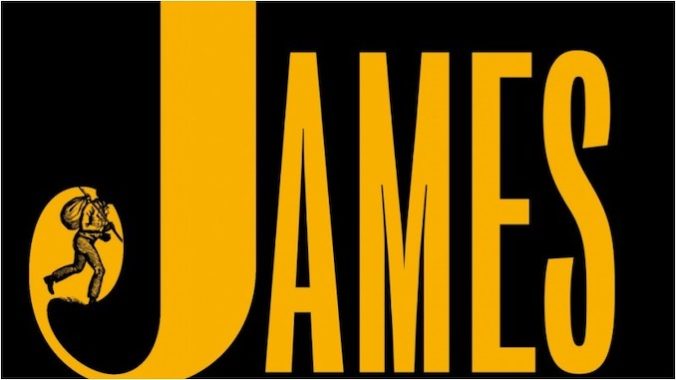The Curmudgeon: Huck’s Jim Gets a Chance to Speak for Himself In James

Mark Twain’s Adventures of Huckleberry Finn is one of America’s greatest works of literature—and one of its most problematic. Contemporary writer Percival Everett provides a new path into the book’s greatness and addresses its problems head-on in his own novel, James, published this month.
Twain’s book contains brilliant comic set pieces and powerful evocations of small-town American life in the mid-19th century. But its greatness lies in its ability to put us in the head of the waifish, barely literate title character, a 13-year-old boy who has unwittingly absorbed the bigotries of the day. Once Twain has lured us inside that head, he has us experience the cathartic epiphany that Huck has about the evils of slavery.
The problems with the book stem from Twain’s willingness to share those unfiltered bigotries with us. The novel’s second major character is Jim, an adult runaway slave, frequently referred to with a racist epithet. The language may be true to 19th-century vernacular, but it grates horribly on 21st-century ears. It seems unfair to require college students of color to confront that language on every other page, so it’s understandable that the book doesn’t get assigned as much as its importance might suggest.
More troubling in some ways is the way Jim is portrayed within the text. He’s clearly the most moral, most sensible human being in the book, but it’s a childish kind of saintliness. His good morals and good sense come from his instincts rather than from mature, analytic thought.
Everett retells Twain’s narrative from inside Jim’s head rather than Huck’s. Most of the events are the same, but the perspective is radically different. Everett’s James is far from childish; in fact, his internal monologues resemble those of a grad student at a good university. In Chapter 2 of James, the title character teaches his six children how to speak to white people—how to speak like Jim in Adventures of Huckleberry Finn.
“Why do we talk differently for them? James asks his kids. “The better they feel, the safer we are,” they respond. And how would you translate that phrase if you were speaking to whites? “Da mo’ betta dey feels, da mo’ safter we be.”
At the end of the chapter, a white man interrupts two slaves conversing in good English. The slaves immediately revert to the pidgin dialect, and when the pompous man walks on, one slave asks the other: “When we see him staggering around later acting the fool, will that be an example of proleptic or dramatic irony?”
Everett is not trying to convince us that slaves actually spoke like jargon-addicted academics. He’s using comic hyperbole to make the point that slaves acted childish around their masters as camouflage and acted like thoughtful adults around one another—as have the members of many an oppressed group throughout history.
And because we’re in the head of James, an intelligent, well-read man, we get a running commentary—a political and psychological analysis of every event in the story. This is very different from Twain’s book, where we’re inside the head of an undereducated kid who misunderstands much of what’s going on.
In Huckleberry Finn, the irony derives from the gap between what the reader knows and what the narrator (Huck) knows. In James, the irony derives from the gap between what the narrator (James) knows and what Huck knows. This leaves the reader with less work to do—and less room for participation—but fills in the gaps in our understanding of Twain’s book.
Both books begin with a comic set piece where Huck and Tom play a joke on Jim by stealing his hat while he’s asleep and hanging it on a nearby peg. In the Twain version, Jim is really asleep; in the Everett version, he’s merely pretending to be asleep—to indulge the youngsters’ foolishness and to avoid quarreling with white folks.
-

-

-

-

-

-

-

-

-

-

-

-

-

-

-

-

-

-

-

-

-

-

-

-

-

-

-

-

-

-

-

-

-

-

-

-

-

-

-

-








































